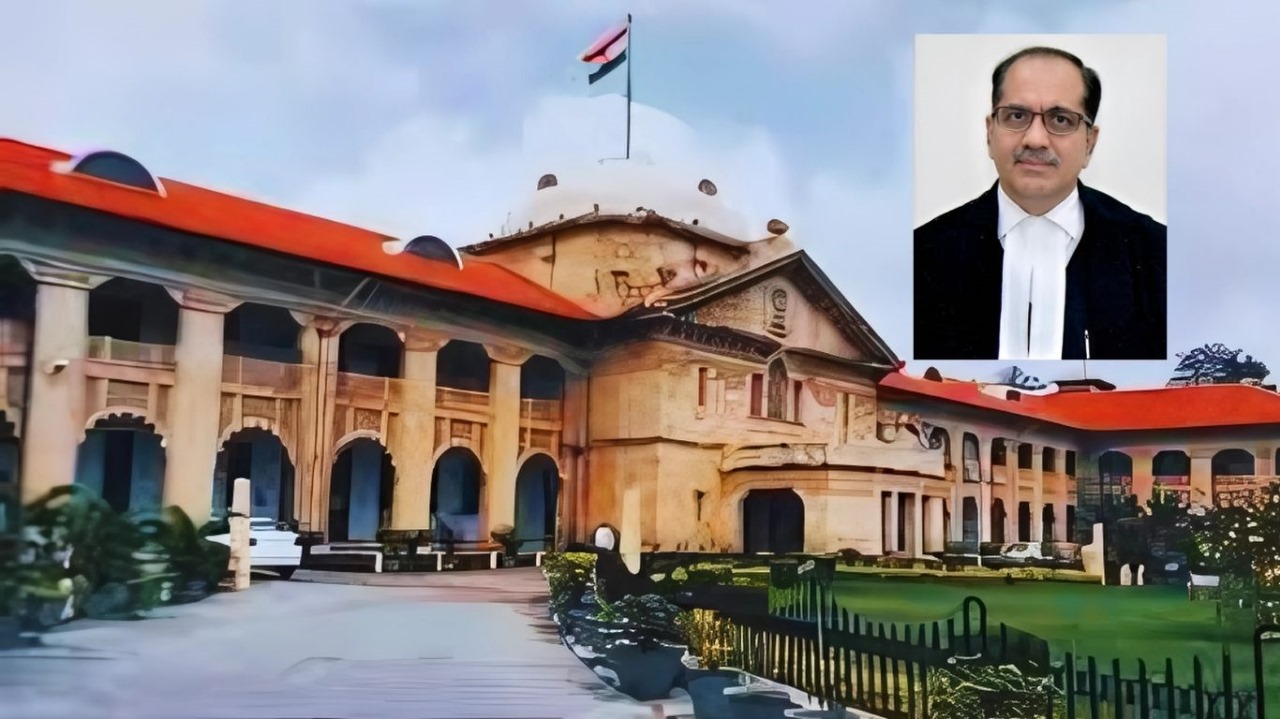Allahabad High Court Judgment on Sexual Assault Creates Outrage New Delhi: In a contentious verdict that has aroused public anger and raised grave legal issues, the Allahabad High Court recently reduced charges against two men who allegedly attacked an 11-year-old girl in Uttar Pradesh. The court held that such acts as grabbing breasts or snapping a pajama string do not amount to attempt to rape, but to aggravated sexual assault—a lesser offence.
The judgment has been widely condemned, with most demanding the intervention of the Supreme Court, saying that the ruling dilutes the seriousness of sexual violence and makes a dangerous precedent.
Table of Contents
The Case That Shook Uttar Pradesh
The incident was reported in 2021 in Kashganj, Uttar Pradesh, where the child was out walking with her mother when two men, Pawan and Akash, accosted them on a motorcycle. They, as per the prosecution, promised to drop the girl home but assaulted her instead.
According to the victim’s testimony, the men allegedly grabbed her breasts, broke the string of her pajama, and attempted to pull her under a culvert. Her screams, however, alerted onlookers who rushed to her rescue. The accused escaped before they could be apprehended.
Subsequently, the two men were arrested on charges of rape and booked under the POCSO (Protection of Children from Sexual Offences) Act by the local trial court. But after the accused moved an appeal in the High Court, Justice Ram Manohar Narayan Mishra held that what they did did not constitute attempt to commit rape but aggravated sexual assault.
The Court’s Justification: The Line Between Attempt and Preparation
In its judgment, the Allahabad High Court differentiated between “preparation” and “attempt” in cases of rape. According to the court, the prosecution was not able to establish the fact that the accused men had gone beyond the stage of preparation towards the completion of rape
“The difference between preparation and actual attempt to commit an offence consists chiefly in the greater degree of determination,” the order said.
Justice Mishra noted that there was no material evidence suggesting that the accused intended to commit rape. Since the victim was not stripped naked or subjected to penetrative assault, the court concluded that the incident did not qualify as attempted rape.
Read More:- Ducati India Launches the 2025 Scrambler Icon Dark at ₹9.96 Lakh: A Balance of Style and Performance
The judge further emphasized
The particular charge against Akash is that he attempted to pull the victim under the culvert and snapped the string of her pajama. It is also not mentioned by witnesses that because of this act of the accused the victim became naked or undressed.
On the contrary, the High Court asked the men to be prosecuted for Section 354(b) of the Indian Penal Code (IPC)—dealing with assault to strip—and Section 9 of the POCSO Act for aggravated sexual assault on a child under the age of 12 years.
Outrage and Backlash: Victim’s Rights Undermined?
The ruling has been greeted with outrage and legal censure across the country. Senior attorney Indira Jaising demanded suo moto action by the Supreme Court, denouncing the ruling for underplaying the gravity of the offense.
“Needs suo moto action by the Supreme Court. Judges have been taken to task for much less by the Supreme Court,” Jaising tweeted on X.
Women’s rights groups and legal analysts believe that the court’s interpretation opens up a perilous legal loophole. People flooded social media with questions:
“If pulling apart a string of pyjamas and dragging a child is not an attempt to rape, then what is it?”
The decision has again sparked India’s debate over sexual violence legislation, with critics pointing out how subtle legal complexities can tend to dilute the gravity of such crimes.
Legal Experts Opine: A Precedent for Dilution?
Most legal experts caution that the court ruling could set a precedent whereby perpetrators of sexual assault can use legal definitions to avoid more stringent charges.
Criminal lawyer Priya Malhotra clarifies:
“Attempt is a subjective interpretation, but the intent behind the act has to be considered as well. Watering down the charges dilutes the victim’s trauma and dilutes the protection mechanism under POCSO.”
She also said that the POCSO Act was specifically created to deal with crimes against children with harsher punishments, which made the charge dilution more disturbing.
Family and Activists Move to Approach Supreme Court
The victim’s family, joined by child rights activists, is planning to file an appeal. Activists have contended that the judgment negates the spirit of the POCSO Act, which aimed to provide absolute protection to children.
Rights activist Anjali Mehta responded with shock:
“This judgment is a chilling signal to survivors: unless you’re completely naked or penetrated, your trauma isn’t grave enough for strong legal intervention.”
Human rights groups are seeking the Supreme Court to take suo moto cognizance of the case on grounds that the interpretation of the High Court would have significant implications in future sexual assault cases.
The Larger Picture: The Reforms to the Law
Allahabad High Court’s ruling has also initiated a larger debate around the sexual assault laws of India. Judicial reforms for avoiding judicial constructions of loopholes against the justice of victims are most necessary by legal practitioners and activists.
Some of the key demands are:
- Definite definition of “attempt”: According to experts, the law must consider intent and context rather than physical movements.
- Enforcing POCSO strictly: Activists urge stricter enforcement of child protection law so that the perpetrators are given proportionate punishment.
- Judicial sensitivity training: Legal organizations demand sensitivity training for judges who are dealing with cases of sexual violence to avoid giving judgments that dilute the survivors’ trauma.
Time for Justice, Not Technicalities
Allahabad High Court’s verdict has raised a nationwide debate regarding the rights of the victims and the judicial interpretation of sexual assault laws. With the tide of public indignation rising, the Supreme Court is coming under mounting pressure to intervene and review the judgment.
Lawyers, activists, and ordinary citizens are calling for justice rather than legal niceties with the contention that the dignity and safety of the survivors must be given a greater priority over procedural interpretations.
The case now stands as a litmus test for India’s judicial system—whether it can prioritize survivor justice or allow legal loopholes to facilitate perpetrators to escape unpunished.
Disclaimer:
The information presented in this article is based on publicly available news reports and legal proceedings. The content aims to provide a factual and balanced overview of the case and its legal implications. Readers are encouraged to refer to official court documents and legal resources for comprehensive details. This article does not offer legal advice or pass judgment on the individuals involved.






